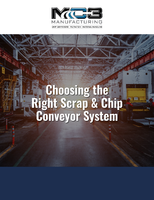ASTM Committee Approves Standard to test for glycols in motor oil.
Press Release Summary:
ASTM International standard D7922, Test Method for Determination of Glycol for In-Service Engine Oils by Gas Chromatography, is intended for use by companies that use large, industrial engines. Test method describes analysis for ethylene glycol that looks for single component in complex matrix of engine oil. Dirty used oil sample is directly reacted with chemical that will derivatize ethylene glycol to form another compound: ethylene glycol phenylboronate (EGPBA).
Original Press Release:
ASTM Petroleum Committee Approves New Standard to Test for Glycols in Motor Oil
The presence of ethylene glycol in inservice motor oil indicates that antifreeze coolant has leaked into the crankcase of an internal combustion engine. Such leakage leads to engine wear problems. A new ASTM International standard will be used to effectively determine whether glycols are present in motor oil.
The new standard is D7922, Test Method for Determination of Glycol for In-Service Engine Oils by Gas Chromatography. The standard will be used for ethylene glycol detection by many types of companies that use large industrial engines, including:
• Trucks;
• Earth moving machinery;
• Railway trains;
• Oceangoing ships;
• Military vehicles; and
• High performance race cars.
The test method describes an analysis for ethylene glycol that looks for a single component buried in the complex matrix of engine oil. A dirty used oil sample is directly reacted with a chemical that will derivatize the ethylene glycol to form another compound, ethylene glycol phenylboronate, or EGPBA. This method is more specifically geared toward engine coolants than any previous oil testing method.
D7922 was developed cooperatively by Subcommittees D02.04.0L on Gas Chromatography Methods and D02.96 on InService Lubricant Testing and Condition Monitoring Services. Both subcommittees are part of ASTM Committee D02 on Petroleum Products, Liquid Fuels and Lubricants.
“D02.96 contributed its expertise on analysis of inservice engine oils as well as knowledge of the inservice lubricants laboratory industry, and D02.04.0L contributed its expertise on the use of gas chromatography for this application,” says ASTM D02.04.0L chairman Frank P. DiSanzo, ExxonMobil Research and Engineering. “The collaborative efforts of the two subcommittees resulted in D7922.”
To purchase standards, visit www.astm.org and search by the standard designation, or contact ASTM Customer Relations (tel +1.877.909.ASTM; sales@astm.org). ASTM welcomes participation in the development of its standards. Become a member at www.astm.org/JOIN.
For more news in this sector, visit www.astm.org/snenergy or follow us on Twitter @ASTMEnergy.
ASTM Committee D02 Next Meeting: Dec. 711, 2014, San Diego, Calif.
Technical Contact:
Frank P. DiSanzo, Ph.D.
ExxonMobil Research and Engineering
Annandale, N.J.
Phone: +1.908.730.2815
frank.p.disanzo@exxonmobil.com
ASTM Staff Contact:
Alyson Fick
Phone: +1.610.832.9710
afick@astm.org
ASTM PR Contact:
Barbara Schindler
Phone: +1.610.832.9603
bschindl@astm.org




